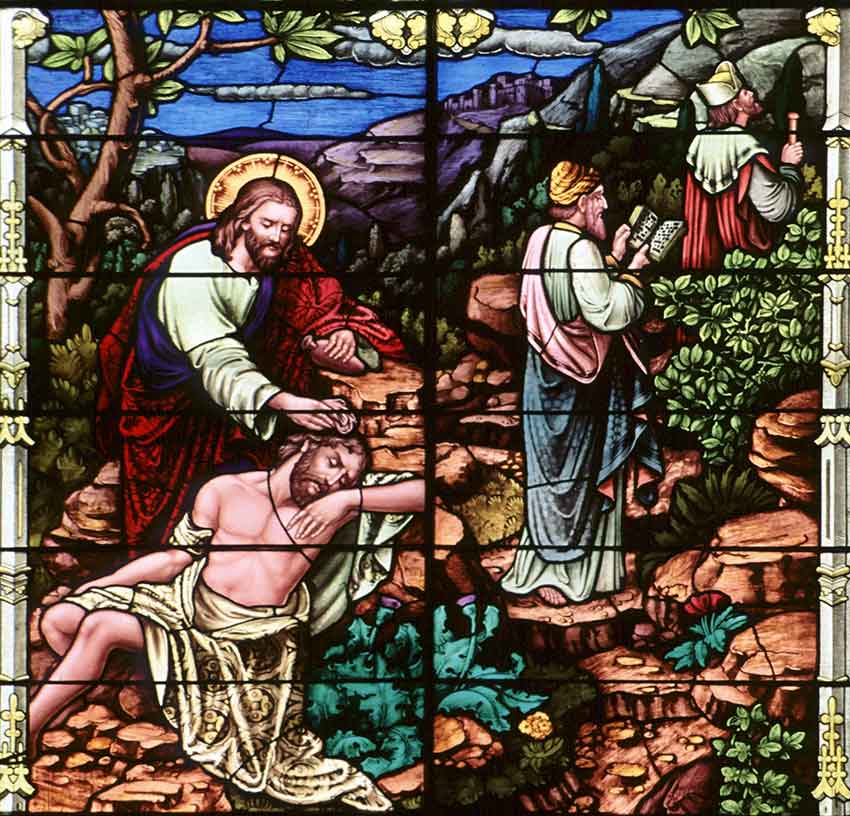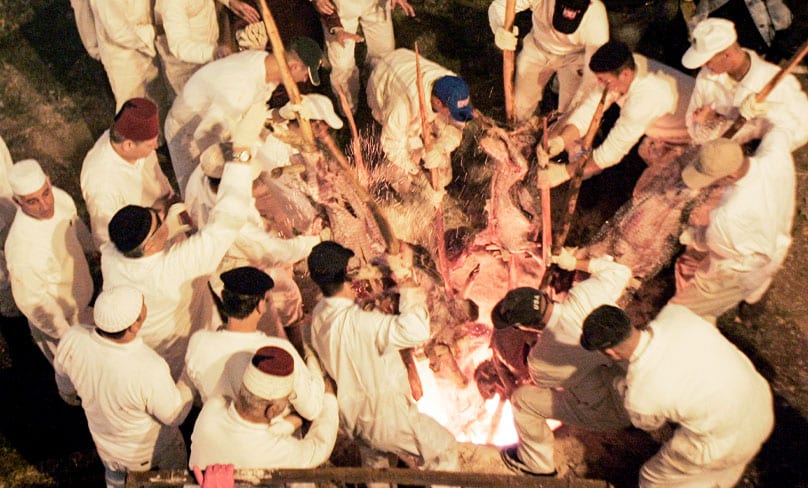
Dear Father, In a number of passages of the New Testament it is clear that Jews and Samaritans were not on good terms. Who were the Samaritans and why did they not get on with the Jews?
First of all, Samaria is the region in Israel between Galilee in the north, with towns like Nazareth, Cana and Bethsaida, and Judaea in the south, the location of Jerusalem and Bethlehem. Jesus often passed through Samaria on his way to Galilee or Judaea.
In a number of passages, as you say, it is clear that Jews and Samaritans were not on good terms with each other.
We see it, for example, when James and John wanted to call down fire to destroy a Samaritan town (cf. Lk 9:51-55), and in the encounter of Jesus with the Samaritan woman at the well (cf. Jn 4:1-42).
There are differing accounts of exactly when and how the hostility between the people of the two regions arose, but a number of facts are clear.
The opposition can be traced back, first, to the division which arose after the death of King Solomon, around 930 BC.
The kingdom, which had been united under Solomon, became divided between Solomon’s two sons into the northern Kingdom of Israel, with its capital, Samaria, and the southern Kingdom of Judah, with its capital, Jerusalem.
“The records of that king indicate that he deported more than 27,000 inhabitants of the kingdom of Israel to Assyria at that time.”
The northern kingdom was portrayed in the Old Testament as a sinful kingdom for its practice of idolatry and various forms of iniquity and for this it was punished by God.
Part of the punishment was the conquest of the northern kingdom by the Assyrian king Sargon II around the year 721 BC.
The records of that king indicate that he deported more than 27,000 inhabitants of the kingdom of Israel to Assyria at that time.
The deported people were replaced by the forced resettlement in Samaria of other peoples of different ethnic and religious backgrounds.
The Second Book of Kings, for example, speaks of the Assyrian king sending people from Babylon, Cuthah, Avva, Hamath and Sepharvaim to settle in Samaria.
Because these peoples did not worship the true God, God sent lions which killed some of them.

King Sargon then had one of the Jewish priests he had taken to Assyria sent back to teach the new settlers the law of God.
The result was that the new settlers worshipped both the God of Israel and gods from the lands from which they came.
The account concludes: “So these nations feared the Lord, and also served their graven images; their children likewise, and their children’s children – as their fathers did, so they do to this day” (cf. 2 Kings 17:24-41).
In the Second Book of Chronicles, following the destruction of Samaria, King Hezekiah in Jerusalem is depicted as endeavouring to draw the Ephraimites, Zebulonites, Asherites and Manassites, all peoples from the region of Samaria, closer to Judah (cf. 2 Chron 30:1).
That at least some Samaritans still had reverence for the God of Israel is evidenced by the fact that temple repairs in Jerusalem at the time of King Josiah were financed by money from the Samaritan peoples of Ephraim and Manasseh as well from the peoples of Judah, Benjamin and Jerusalem (cf. 2 Chron 34:9).
The prophet Jeremiah also speaks of people from Shechem, Shiloh and Samaria bringing offerings of frankincense and grain to the house of Yahweh (cf. Jer 41:5).
“In Jesus’ time, both the Jewish and the Samaritan religious leaders taught that it was wrong to have any contact with the other … and neither was even to speak to the other.”
The Samaritans worshipped God on Mount Gerizim, where they believed Abraham was asked to sacrifice his son Isaac, whereas the Judaeans worshipped God in the temple in Jerusalem.
In Jesus’ conversation with the Samaritan woman at the well, the woman said: “Our fathers worshipped on this mountain”, referring to Mount Gerizim, “whereas you say that in Jerusalem is the place where men ought to worship.”
Jesus replied: “You worship what you do not know; we worship what we know, for salvation is from the Jews” (Jn 4:20-23).
In Jesus’ time, both the Jewish and the Samaritan religious leaders taught that it was wrong to have any contact with the other people, and neither was even to speak to the other.
We see an example of this when Jesus is passing through a Samaritan village with his disciples, on the way to Jerusalem, “but the people would not receive him, because his face was set toward Jerusalem” (Lk 9:52-53).
So, the hostility between Jews and Samaritans went back a long way, it was based on ethnic and religious differences and it was deep-seated.
